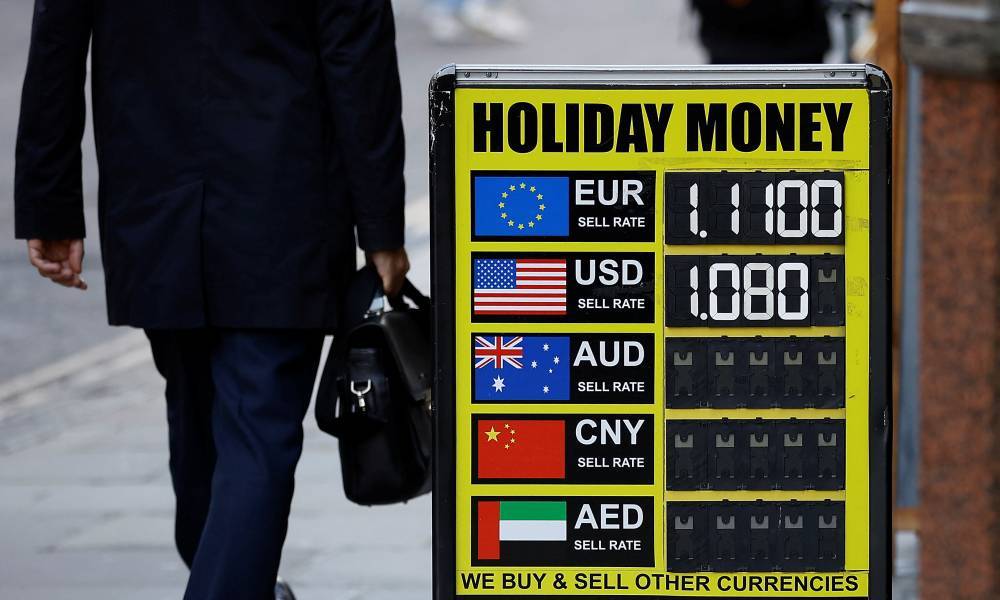The magnitude and speed of British asset sales have shocked global markets and heightened concern over the epidemic, as chaos in a large advanced economy has exacerbated already seething concerns over sharp interest rate hikes in the U.S. and in other countries.
After the UK’s mini-budget was announced on Friday, which included £ 45bn ($ 48bn) of unfunded tax cuts, the pound fell to historic lows with UK bond prices plummeting. Signs of turbulence emerged on Wednesday before the Bank of England (BoE) stepped in to calm the markets.
This happened as markets are already strained from the energy crisis that fueled inflation, as well as the rising dollar, which triggered headwinds globally and prompted the Bank of Japan to make a rare market intervention. currencies only last week.
“It’s like having a sandcastle that falls completely,” said Olivier Marciot, head of multi-asset investment and asset management at Unigation Asset Management, referring to Britain’s contribution to global tension. “I think the UK is one of those parts.” suffering increases, tension increases ”.
Concern over Britain’s new economic policy exacerbated already high volatility, with turbulence in UK government bonds spilling over to US Treasuries and high-rated German bonds.
It is clear that global concern is growing over the potential repercussions of Britain’s steps. On Monday, Rafael Bostick, head of the US Federal Reserve branch in Atlanta, warned that events in the UK could lead to more economic pressures in Europe and the US, while the International Monetary Fund criticized the UK’s new fiscal plans on Tuesday. The Financial Times quoted US Treasury Secretary Janet Yellen on Tuesday as saying the US was monitoring developments in Britain.
“There will be impacts, correlations … some market volatility, and then how it affects the global growth landscape … the United States is a largely isolated economy … we are More isolated from many global factors pressure, but with this happening, we are not completely immune from what is happening in Europe, China and Great Britain. “
Dan Evaskin, chief investment officer of Pimco Investments, said that while he felt developments in Britain did not present significant systemic risk, they added to the turmoil in already volatile markets.
With UK bond yields up 100 basis points in two days to multi-year highs, 10-year US Treasury and German bond yields also rose.
Bank of America’s Moov Index, which measures volatility in the U.S. bond market, also jumped to its highest level since March 2020.
The strong volatility of the pound has reverberated in the currency markets, which are already experiencing increasing turbulence. According to the widely followed Deutsche Bank Currency Volatility Index, currency volatility reached its highest level on Wednesday since the market crash caused by the Corona pandemic in March 2020, jumping more than 20% from levels a week ago.
The Bank of England’s announcement on Wednesday that it will buy all the long-term government bonds needed between now and October 14 to stabilize the markets has led to some calm.
However, not all investors felt this was the best approach, with Stanley Druckenmiller of the Duxney family office arguing that bond buying is not appropriate in an inflationary environment.
Closely followed financial stress indicators remain under control. US dollar borrowing costs in derivatives markets increased significantly this week but remained well below levels recorded after the Russian invasion of Ukraine began in February and the market collapse due to the pandemic of Corona in March 2020.
The volatility of the US stock market has also increased, according to the measures of the “Fear Index” (VIX) in recent days, but the index has not reached the highest levels recorded earlier in 2022.
But the risk of contagion still exists against the backdrop of uncertainty in the global landscape and rising interest rates around the world.
“The markets are selling, the central banks are very aggressive … This sense of confusion means that the moves tend to exacerbate each other,” said Charles Diebel, head of fixed income strategy at Mediolanum Asset Management.
On Wall Street
The Standard & Poor’s stock index hit its lowest close in nearly two years on Tuesday, hit by economic tremors in the US due to interest rate hikes.
Michael Perves, chief executive of Tollbakken Capital Advisors in New York, said that some of the weakness in the stocks could be linked to what is happening in Britain, because the volatility there leads to a “reduction in risk”, including the sale of US government bonds.
In times of high stress such as during the market crash caused by the Corona pandemic in March 2020, investors are even selling safe haven assets such as Treasuries to support liquidity and offset losses in other items in their portfolios.
Britain is the sixth largest economy in the world and around five per cent of global foreign exchange reserves are denominated in sterling, underlining the importance of the UK in the global financial system.
While the sharp rise in US interest rates is already putting pressure on global markets, for example through dollar strength, there is more and more talk of a global move to calm markets.
“To contain inflation, we need global action and this global response should be aimed at calming the question … Obviously, in its own right, that when the British Prime Minister and the administration relax fiscal policy, this , by definition, it does not dampen demand. “(Reuters)
–


